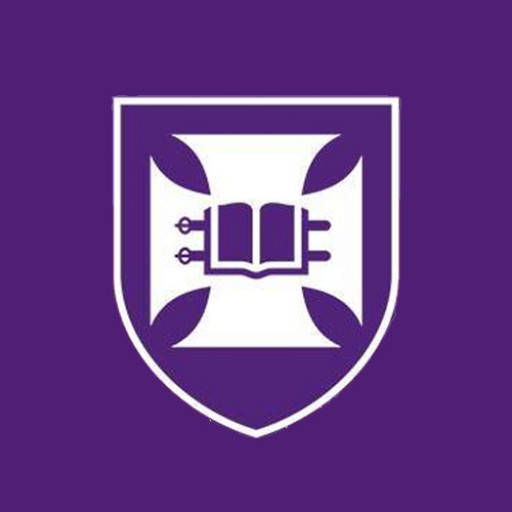Photos of university / #deakinuniversity
The Bachelor of Psychology at Deakin University offers students a comprehensive education grounded in scientific research and practical application. Designed to provide a strong foundation in psychological theories, research methods, and clinical practices, this program prepares graduates for diverse careers within the mental health, social services, research, and education sectors. Throughout the course, students explore a wide range of topics including abnormal psychology, developmental psychology, cognitive psychology, and social psychology, enabling them to develop a deep understanding of human behavior and mental processes. The curriculum emphasizes critical thinking, data analysis, ethical practice, and effective communication, equipping students with essential skills for both professional settings and further study.
Deakin’s Psychology program is accredited by the Australian Psychology Accreditation Council (APAC), ensuring that it meets national standards for education and training in psychology. Students benefit from access to state-of-the-art laboratories, research facilities, and a team of experienced academic staff who are actively involved in innovative research. The program includes practical components such as placements and internships, providing invaluable real-world experience and opportunities to apply theoretical knowledge in practical contexts. This blend of academic rigor and practical training aims to produce competent, ethical, and reflective psychologists capable of contributing positively to society.
In addition to core coursework, students have opportunities to specialize in specific areas of interest through elective options or pathways into postgraduate study. Graduates of the Bachelor of Psychology are well-prepared for careers in areas such as mental health support, counselling, human resources, and community services, or for further education options including Honours, Master’s, or Doctoral programs in Psychology. Deakin’s supportive learning environment, combined with flexible study options including full-time, part-time, and online modes, makes the program accessible to a diverse range of students. Upon graduation, students are equipped not only with comprehensive knowledge of psychological principles but also with the critical skills necessary to make a meaningful contribution within various professional settings or to pursue advanced qualifications in psychology.
TThis course is accredited by the Australian Psychology Accreditation Council (APAC), recognised for registration purposes by the Psychology Board of both Australia and meets the requirements for associate membership of the Australian Psychological Society (APS).
Internal applicants: Bachelor Degree from Deakin University with an approved three-year big order in psychology with a minimum of a mid-credit (65 percent ) at Research Procedures B and a minimum average of 65% over all level 2 and level-3 Psychology center components, or Graduate degree in Psychological Science or Graduate Diploma of Psychological Studies from Deakin University with a minimum of a mid-credit (65 percent ) at Research Techniques B and a minimum average of 65% over all level 2 and level-3 Psychology center components. External Applicants: Bachelor Degree (with an APAC accredited Igbo big order in psychology) with minimum of a mid-credit (65 percent ) at a level three-dimensional Research Methods unit and a minimum average of 75 percent over all level 2 and level-3 Psychology center components, or even a Foundation Level 1 APAC accredited Psychology class or equivalent (such as: a 3-year bridging class - Graduate Diploma of Psychology) with minimum of a mid-credit (65 percent ) at level three-dimensional Research Methods unit and a minimum average of 75 percent over all level 2 and level-3 Psychology center components.
The financing of the Bachelor of Psychology program at Deakin University involves several key components to support students in managing the costs associated with their studies. Tuition fees are the primary expense, with domestic students eligible for Commonwealth Supported Place (CSP) options, which substantially reduce the financial burden through government subsidies. In this case, students are responsible for the student contribution amount, which varies depending on the units undertaken and the student's residency status. For international students, tuition fees are higher and are payable directly to the university, with costs established annually and detailed on the university's official fee schedule.
Deakin University offers various scholarships and financial assistance programs designed to ease the financial pressure on students pursuing psychology degrees. These scholarships are awarded based on criteria such as academic merit, financial need, or other specific eligibility requirements. Examples include the Deakin Scholarship for Excellence and the Deakin Access Scholarship, which provide partial tuition fee waivers or reimbursements. Additionally, students may access external funding sources, including government assistance programs like Austudy or Youth Allowance for eligible domestic students.
Apart from tuition fees and scholarships, students should consider additional costs such as textbooks, learning materials, technology requirements, and placement expenses if applicable. The university provides guidance on estimated costs for these items, and students are encouraged to budget accordingly. Payment options are flexible, including upfront payments, payment plans, and deferrals, allowing students to manage their finances effectively throughout their course duration.
Deakin University also provides financial planning resources and support services to help students better understand their expenses, explore funding options, and develop budgets. Many students utilize part-time work opportunities available locally or through the university's work-placement programs to supplement their income during their studies. Furthermore, international students can seek advice on exchange rates, currency transfer costs, and additional expenses related to living abroad.
Overall, the financing of the psychology program at Deakin is designed to be accessible and flexible, with multiple avenues available to students to support their educational and living costs. The university’s emphasis on scholarships and financial assistance, combined with transparent fee structures and supportive services, helps students undertake their psychology degree with manageable financial planning. Students are encouraged to explore all available options early in their studies to ensure they have adequate financial resources for the duration of their course.
The Bachelor of Psychology at Deakin University offers students a comprehensive foundation in the core principles and practices of psychology. This undergraduate program is designed to equip students with a deep understanding of human behavior, mental processes, and social interactions, preparing graduates for a variety of professional pathways or further postgraduate study in psychology. Throughout the course, students engage in a blend of theoretical coursework, practical skills development, and research training. The curriculum covers fundamental areas such as developmental psychology, abnormal psychology, cognitive processes, neuroscience, and social psychology. Additionally, students gain essential skills in research methods, statistical analysis, and ethical considerations critical to the discipline.
Deakin University places a strong emphasis on experiential learning, integrating practical placements and real-world case studies to enhance student learning and application of knowledge. Participants in the program have opportunities for internships within healthcare services, community organizations, or research institutions, providing valuable industry connections and professional experience. The program is accredited by the Australian Psychology Accreditation Council (APAC), ensuring that students meet the national standards required for registration as a psychologist in Australia upon further study.
Graduates of the Bachelor of Psychology at Deakin are well-prepared for careers in various sectors, including mental health services, research, education, human resources, and social services. Many students choose to continue their studies at the postgraduate level to specialize further in clinical psychology, counseling, or organizational psychology, among other areas. Deakin also offers pathways into combined degrees and honours programs for highly motivated students seeking to deepen their expertise. The university’s state-of-the-art facilities, experienced faculty, and strong industry links contribute to a supportive learning environment. Overall, the program aims to foster critical thinking, ethical practice, and a lifelong commitment to understanding human behavior, making it an excellent choice for students interested in psychology and related fields.







